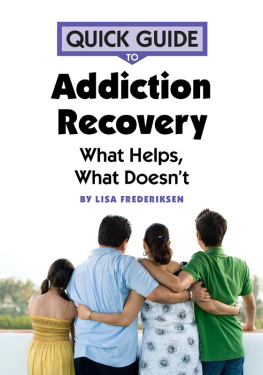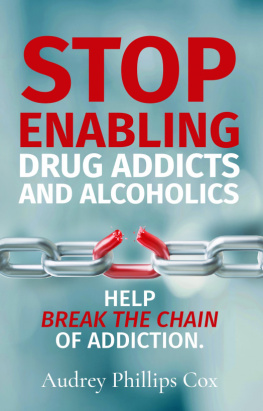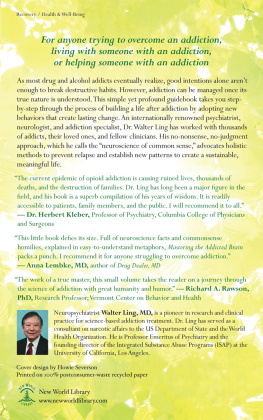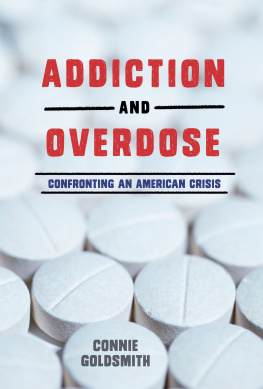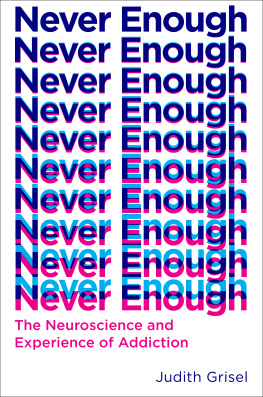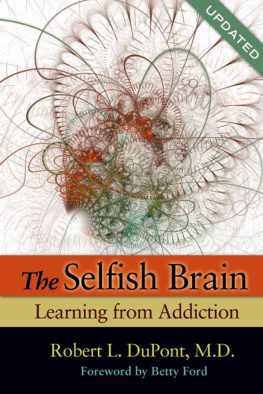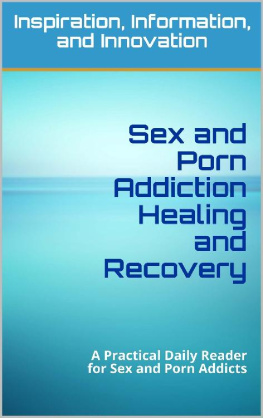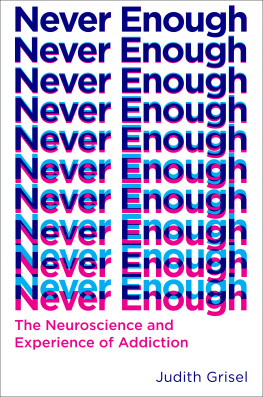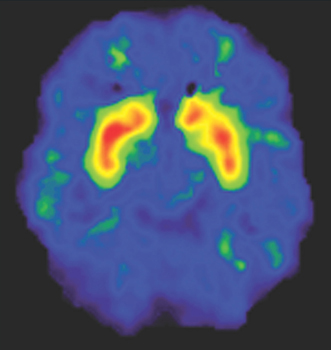Advances in brain-imaging science and other research have led us to a new understanding. This is your brain:
This is your brain addicted to:
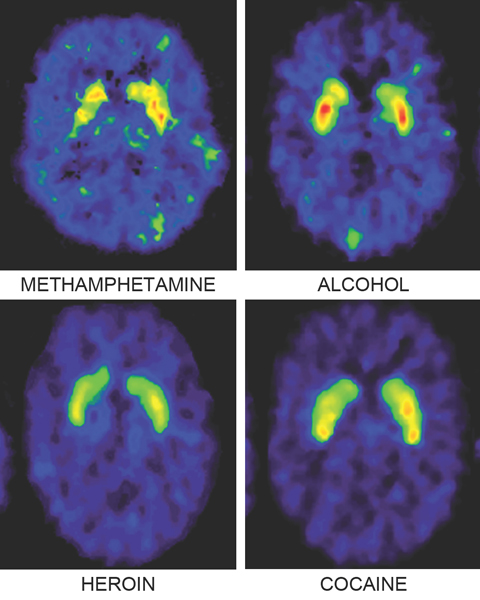
Using drugs and alcohol repeatedly over time alters brain chemistry and function.
Addiction is a brain disease. Treatment can work.
Foreword
You discover someone in your family or a loved one is addicted to drugs or alcohol and your life is changed forever. Where do you go? What do you do? You realize how little you know.
In a state of a panic, you look for remedies to deal with this illness and you wonder to whom you can turn for the best kind of treatmentand at the same time, you feel the need to protect your privacy. With a mixture of frustration and sadness, you find that answers are hard to come by. And when they are found, they are often conflicting, hard to understand, expensive, and, frequently, not covered by insurance.
What is this disease of addiction? How is the chemistry of an addicts brain altered? Why do co-occurring disorders, such as depression, bipolar states, ADD, and OCD, among others, create in some a need for an addictive substance? What genetic factors make a person more susceptible to the ravages of drugs?
In many ways, an addicted individual becomes a bystander as his affliction takes over his rational thinking, and the burden of finding treatment belongs to those who care for him. The good news is that the addict, with proper treatment and the correct medications, can discover the commitment and the tools necessary to help in his own recovery. The hope is that he will find an alternative lifestyle that replaces the destructive patterns of addiction. The reality, however, is that addicts are often noncompliant and relapse.
This is what HBOs ADDICTION project is aboutstraightening out the dilemma of what the caretaker can give and what the addict is capable of accepting and changing.
It is the hope of the team of producers at HBO that you can discover in our collection of fourteen films, and in this companion book, an understanding that the person you care for has a brain diseasea chronic illness that you and the dependent person will continually struggle with.
HBOs ADDICTION project demonstrates conclusively that this disease is treatable. Recovery is possible for people suffering from addiction. But recovery is a monumental struggle, and facing the realities of addiction will require a lifelong commitment from those who care.
Sheila Nevins
President, HBO Documentary Films
Introduction
John Hoffman and Susan Froemke
Three years ago, when Sheila Nevins asked us to research and produce a television special about drug and alcohol addiction, neither of us had an in-depth knowledge of the subject. We had each witnessed the struggles of family and friends, and had each seen the devastation that addiction can bring to relationships. But we really didnt understand addiction. We didnt truly comprehend what could cause someone to be incapable of stopping themselves from taking a drink or using a drug even when they knew it was ruining their life and, frequently, the lives of others.
Little did we know that coming to understand this dilemma would end up to be such a profound challenge. Even though we were given the time to consume as much information as we could on the topicmeeting with the best minds in this field, and gaining insight from the many people who shared their battles with addiction with uswe found it terribly difficult to attain a comprehensive, working understanding of the topic.
Addiction, as it turns out, is a problem that is messyriddled with misconceptions, profoundly lacking in nationally recognized treatment standards, and highly stigmatized. Conversely, we also came to realize that although the science of addiction is relatively new, tremendous shifts in attitudes are occurring. The biggest change is the growing acceptance by the medical community and the general population that addiction is a chronic relapsing brain disease. A vivid contributor to this change in attitude is the fact that science now gives us the ability to see inside the brains of addicted people. We can see that the addicted brain is different; that it is altered. With brain research has come great advances in the medical treatment of addiction and the promise of even more effective treatments on the horizon.


